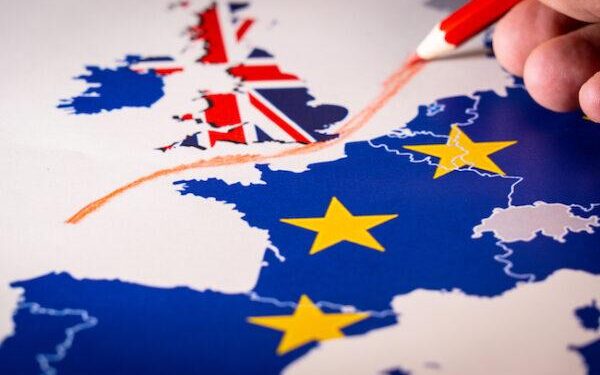Introduction
As the United Kingdom navigates the complexities of its post-Brexit relationship with the European Union, an important summit is on the horizon to address one of the most contentious issues arising from this transition: the implications of the Irish Sea border.Recent evaluations indicate that discussions at this upcoming UK-EU summit could play a pivotal role in alleviating both economic and logistical challenges faced by communities on either side of this maritime divide. The stakes are particularly high for Northern Ireland, where trade dynamics and political stability are critical concerns. As leaders prepare for negotiations, there is a sense of cautious optimism among stakeholders that a collaborative approach may provide solutions to mitigate Brexit’s disruptive effects on local economies and cross-border relations.
UK-EU Summit Addresses Irish Sea Border Concerns
The forthcoming UK-EU summit is set to tackle complex border arrangements in the Irish Sea‚ÄĒan urgent issue that has emerged following Brexit. Leaders from both sides are expected to engage in discussions aimed at minimizing economic disruptions caused by increased inspections and regulations affecting goods transported between Great Britain and Northern Ireland. Given numerous logistical challenges reported by businesses impacted by these changes, this meeting represents a notable opportunity to enhance trade fluidity and cooperation.
Key topics on the agenda include:
- Simplifying customs procedures: Streamlining processes related to goods movement to avoid delays.
- Aligning regulatory frameworks: Discussing strategies for smoother collaboration regarding product standards and safety protocols.
- Supporting businesses: Exploring avenues for financial assistance and advisory services for affected sectors.
| Challenge | Proposed Solutions |
|---|---|
| Increased border inspections | Create digital tracking systems |
Trade Impact Analysis for Northern Ireland
The recent dialogues at the UK-EU summit have revealed several vital insights concerning trade ramifications for Northern Ireland. The ongoing negotiations aim at facilitating smoother movement of goods between the UK and EU while addressing regulatory complexities introduced by Brexit. Key stakeholders express optimism that outcomes from these discussions could lead toward greater alignment with EU standards‚ÄĒeffectively reducing administrative burdens associated with navigating cross-border trade through the Irish Sea.
The importance of these developments extends beyond mere procedural adjustments; enhanced collaboration may cultivate stronger economic ties within a more integrated market environment. Anticipated benefits include:
- Lesser tariffs, fostering competitive pricing structures.
- Simplified customs operations, leading to faster transit times across borders.
- Bolder support mechanisms for local enterprises, improving access to EU markets.
| >Trade Element< | >Current Status< | >Potential Advantages< |
|---|---|---|
| >Tariffs< | >High on various products< | >Reduction could enhance competitiveness< |
| Customs< / <<Complex regulations< / <<Streamlined processes would minimize delays< / << | ||
















